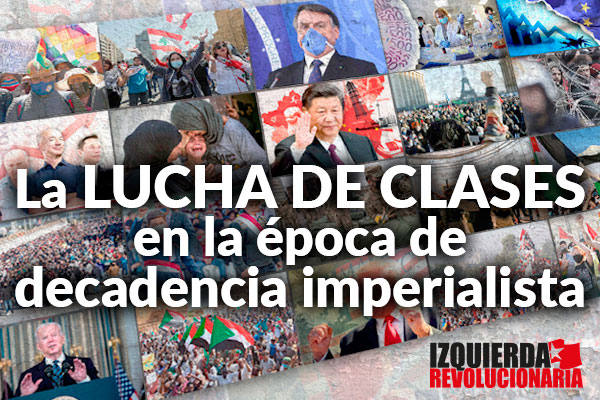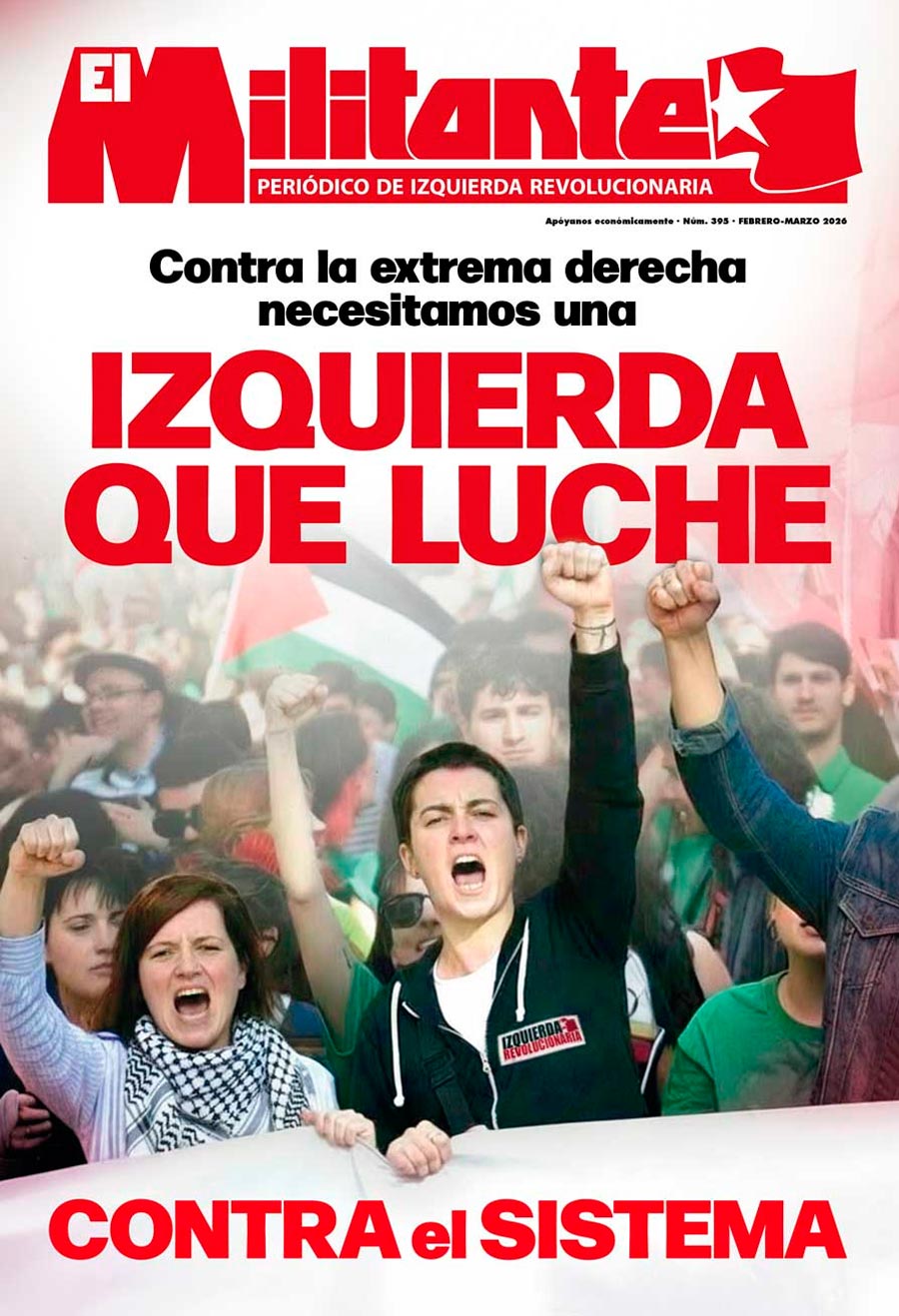On the last 13 and 14 of November, the International Revolutionary Left held its second congress. The discussion, which lasted a day and a half, analysed in-depth the major events of the class struggle of the last period: from the popular uprisings and insurrections that have shaken dozens of countries in the last two years, through the social and economic catastrophe unleashed after the outbreak of the pandemic, the change in the correlation of world forces, as well as the rise of the populist extreme right and the failure of the new formations of the reformist left.
The basis of this debate was the World Perspectives document that we drew up at the beginning of September, which has been discussed and amended in all sections of the International Revolutionary Left over the course of two months. We publish now in two parts the document adopted unanimously at the congress.
The class struggle in the epoch of imperialist decadence (part one)
II. Revolution and counter-revolution
The imperialist debacle in Afghanistan[1]
The stunning victory of the Taliban has provoked a real upheaval, showing to an astonished world the radical change in the correlation of forces between the powers. The entry of the fundamentalists into Kabul without firing a single shot; the collapse and disintegration of Ghani's puppet government and his army - trained and financed by the Americans - and the chaotic images of the evacuation at the airport show the magnitude of the defeat.
Despite the enormous resources devoted to the occupation, $2.26 trillion, the only beneficiaries have been the military-industrial complex and its contractors, Wall Street banks and a corrupt elite of Afghan politicians who have fled with the spoils. The US administration has already paid out 500 billion in interest on a war financed by massive loans. It is estimated that total spending, including loan debt, could reach $6 trillion.
At least 25% of Afghan GDP has been gobbled up by corruption in recent years, enriching warlords and a motley clique of collaborationist sepoys used to build a "state administration" that collapsed like a house of cards in a matter of hours. What has happened to the army is unprecedented: full of "phantom" battalions for which its officers were paid large sums of money, it has been unable to put up a fight. These same warlords, on whom the occupation was based, abandoned their American friends to continue their business with the Taliban.
The Afghan people have been crushed by the intervention. More than 80% of the population lives below the poverty line and more than 30% face food insecurity. Eighty-seven per cent of Afghan women are illiterate (two-thirds of girls do not go to school) and 75 per cent of adolescent girls face forced marriage. The new Penal Code, passed at the behest of the occupiers did not change the Taliban-era legislation on violence against women, maintaining stoning for adultery. Among the Afghan military and police, bacha bazi (literally, "playing with children", a euphemism for child sex slavery) was widespread. Western commanders knew of these widespread abuses and simply looked the other way. The few US soldiers who dared to speak out were expelled from the army.
Since the US invasion, the area under poppy cultivation has increased fourfold. Afghanistan now produces 90% of the world's heroin, with devastating consequences for the population. According to the UN, the number of addicts has risen from 200,000 in 2005 to nearly 2.5 million in 2015.
This is the bleak picture left by the imperialist presence in the country. But the withdrawal of US troops has been nothing more than the implementation of the agreements signed by the Trump administration with the Taliban in 2020. As much as the Republican far-right would like to boast and blame the Democrats for this debacle, neither party of the ruling class has been able to prevent the collapse of the credibility of the US and the distrust that has been generated about its ability to confront China and Russia. Trump's and Biden's proclamations of a rebirth of American national greatness are running up against reality.
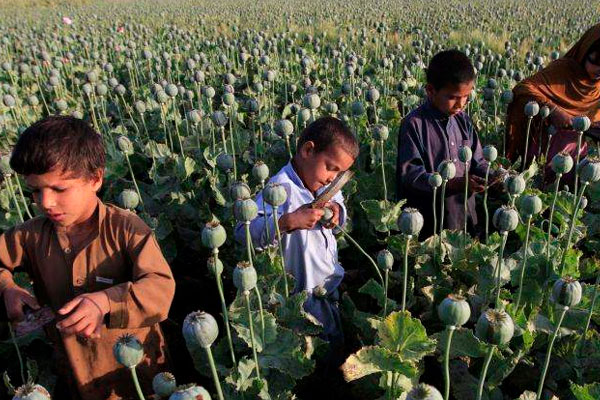
A historic change in international relations
The US defeat in Afghanistan represents a golden opportunity for China. It is no secret that Taliban forces have counted on its political and military cover, and now want Beijing's active support to gain international recognition. The promise of substantial investment in exchange for the future fundamentalist government maintaining reasonable internal stability has prompted the Taliban to make gestures that would have been unthinkable years ago. But it is still too early to say whether they will achieve their goals.
One thing is clear. The Taliban know that only with China's help can they consolidate power, even if only temporarily. If they fail to boost economic activity and rely on open repression, they will never succeed in gaining broad enough social support to prevent a new implosion of civil war. On the other hand, China's interest in Afghanistan, a country with a key geostrategic position and huge reserves of minerals and rare earth needed for technology production, is clear. But there are more forces involved in the equation, and the US bourgeoisie will not stand idly by either.
Syria, Iraq, Afghanistan, Iran, Lebanon, Sudan, Yemen, Palestine, Ukraine, Belarus, Venezuela, Bolivia, Myanmar, Algeria... in all these countries, though the list is long, the White House's imperialist agenda has been dealt a resounding setback.[2] China and Russia have clearly emerged stronger from the major clashes, as have other lesser imperialist powers.
Iran, the eternal enemy of the US, has managed to assert itself as one of the preponderant powers in the Middle East. The strategy of embargoes and economic pressure has not succeeded in driving the mullahs from power but has instead pushed them into closer relations with China, signing investment deals worth $400 billion.
In Syria, it has been Russia and Iran, and indirectly China, that have won an undisputed victory. The regime of Bashar al-Assad has secured its position at the helm of a country devastated by a reactionary war. The role of US imperialism, in partnership with the Islamic State, was decisive in the evolution of the armed conflict and its destructive virulence. This defeat, added to those in Afghanistan and Iraq, has left US interests in the Middle East and Central Asia completely shaken.
Old US allies such as Turkey and Pakistan have changed their positions. The latter is emblematic. After decades as a bulwark of US imperialism, the rotten Pakistani bourgeoisie and its military apparatus, including the powerful secret services, have placed themselves under Chinese influence and are bidding to play a major role in its "New Silk Road".[3] The resulting benefits of this operation can be imagined. That is why, after actively intervening in favour of the Taliban, they will do everything in their power to bring Afghanistan into the Chinese project.
Saudi Arabia and Egypt have also signed agreements with China, joining the "New Silk Road" and the Asian Infrastructure Investment Bank in order to finance it. The list extends to other countries such as Myanmar, whose military junta has received decisive help from Chinese imperialism to drown the popular insurrection in blood[4], or even the Philippines, whose loyalty is openly wavering.
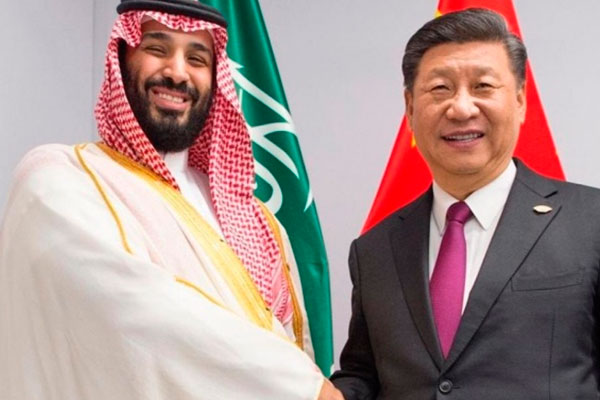
Israel and the Palestinian uprising
But Afghanistan is not the only critical point for the US. In the recent period, the Middle East as a whole has become a central stage of class struggle and of the transformations shaking international relations. The revolutionary movement of the Algerian hirak[5] was followed by the popular uprisings and revolutionary crisis in Iraq and Lebanon[6], or the protracted workers' struggles in Iran. There is no single stable regime in the region, which is deeply divided among its ruling classes.
In this complex scenario, Palestine is a fundamental component of the Arab revolution. On the one hand, it is the ultimate expression of the impossibility of resolving the national question under capitalism. On the other hand, it is an unappealable vindication of the theory of permanent revolution: the liberation of the Palestinian people cannot be separated from the struggle for a socialist Palestine and a socialist Israel. This is a central idea that has been demonstrated by the experience of more than 70 years.
The material situation of the Palestinian people is the worst since 1948. The various wars won by Israel, the theft of land through legal and illegal settlements, the abandonment of Arab "allies"..., have resulted in brutal domination over the West Bank and Gaza and a system of apartheid against the Palestinians inside Israel. But the other side of this oppression is that the objective forces for the liberation of the Palestinian people are more active than ever.
The Palestinian question has its roots in the policy of British imperialism after the First World War. From that time until partition in 1947, it manoeuvred between the Zionists and the reactionary Arab warlords, using a tactic of "divide and rule", as in India or Ireland. Palestinian national identity emerged in this context. Historically, the region had been under Arab rule, and after the Ottoman Empire, its inhabitants were Arabs and other ethnic groups professing different religions, but until then there had been no distinct Palestinian people. Their national consciousness was shaped by the most ruthless imperialist oppression.
The Second World War brought profound changes. The Nazi holocaust strengthened the positions of the most reactionary Zionism, hitherto a minority among the Jewish people and largely rejected by the working class, and accelerated the departure of thousands of Jews from Europe to Palestine. At that time the two great world powers, US imperialism and Stalinism, both strengthened after the Second World War, were vying for influence in a key territory.
Today it is necessary to remember that the force that most encouraged the partition of Palestine was the Stalinist clique in Moscow, and also the one that provided the Zionist organisations with the first major military aid. A criminal policy that sowed the division of the population along national lines and which broke with any socialist and internationalist outlook. Seeking to get ahead of the US, Stalin achieved just the opposite.
Under the impetus of the USSR and Western imperialism, in November 1947 the partition of Palestine was voted in the UN and on 14 May 1948 Israel proclaimed its independence. What followed the "resolution of the Jewish national question", along the lines proposed by the Stalinists and imperialists, was brutal. The Nakba meant the expulsion of 750,000 Palestinians, two-thirds to three-quarters of the total, the theft of their homes and property, and the beginning of apartheid. The UN divided the territory between Israel (55%) and Palestine (45%), with Jerusalem under international administration.

A few months later, Israel had already occupied 50 per cent of Palestine plus West Jerusalem following victory in the first Arab-Israeli war (against its five Arab neighbours). In this war, arms provided by the Stalinist bloc (via Czechoslovakia) were decisive, as Israeli President Ben-Gurion acknowledged twenty years later. Then, in 1967, after the Six-Day War, Israel occupied the Gaza Strip, the West Bank, East Jerusalem, the Golan Heights and the Sinai Peninsula.
It is no coincidence that the first three decades of the Israeli state's existence were marked by the Labour Party's absolute domination of all spheres of power - it was not until 1977 that the first Likud government was formed. The way in which Israeli state-building appeared in 1948 was the illusion of the kibbutz and a 'self-managing' façade in which Israel was compared to Yugoslavia, which had an impact on the left around the world. But the situation quickly changed and Labour was soon acting openly as the political agent of US imperialism. Of course, the Israeli regime benefited from strong post-war economic growth.
When the Palestine Liberation Organisation (PLO) was formed in 1964, in the heat of the Cuban revolution and the great colonial liberation movements in Africa (Congo, Angola, Mozambique...), its policy replicated the Stalinist programme of most of the guerrilla organisations of the time: the two-stage theory and the search for alliances with the supposedly "Arab democratic bourgeoisie". This orientation, its guerrilla incursions first and the widespread practice of individual terrorism later closed the road to the Israeli working class. The Zionist bourgeoisie was able to profit from this failed strategy for decades, militarizing society to the maximum and spreading its supremacist nationalism among broad layers of the population.
Then came the bloody defeats of the Palestinian resistance in Jordan and Lebanon, which we cannot deal with in this space, and which certified the betrayal of the Arab bourgeoisie of the Palestinian cause and its rabid opposition to any revolutionary movement that could undermine the bases of capitalism and the power of these corrupt oligarchies.
It was from 1987, with the outbreak of the First Intifada, that the Palestinian popular uprising based on strikes and mass struggle spread to the Palestinians in Israel, generating a wave of solidarity throughout the world, including among the Israeli population. But Arafat and his collaborators, instead of using this wonderful movement to call the Israeli people to the struggle for socialism in a unified way, and to overthrow the Zionist regime and the Arab bourgeoisie, used it to weave the Oslo Accords, a full-fledged surrender and fraud whose only result was to subcontract a part of the Israeli occupation to the Palestinian National Authority.
The Zionist regime benefited from the political mistakes of the PLO and, above all, from the US sponsorship that has supported it economically and militarily with massive resources. But today Israel is in the deepest crisis of its history, which is explained by the fact that its historical role as a bulwark of imperialism against the Arab regimes has been superseded. The vast majority of them have long been agents of the State Department, with the exception of Iran. They have re-established diplomatic relations with Tel Aviv and relied on its advice and military support to repress and crush the Arab spring.
Israel's Zionist regime has for decades maintained standards of living, for large sections of the population, equivalent to those in Western countries, and this was the basis of its stability. But now that situation is over. The problem for the Israeli ruling class comes not from outside, but from within, with the development of a class struggle sharpened by the economic crisis, the impoverishment of the middle classes and the loss of prospects for the youth, among whom Zionist chauvinism is finding it increasingly difficult to penetrate. The pandemic has only accelerated events. Unemployment rose from 3.8% in 2019 to 6.1% in 2020 and is estimated to reach 6.5% in 2021.
The ruling class has an obvious legitimacy problem. Although social polarisation has been expressed in mass mobilisations against the right in recent years, in the electoral arena the fragmentation and crisis of the traditional formations have made it impossible to form a stable government.
Seeking a way out of the impasse and in order to save his personal career, Netanyahu provoked the latest war against the Palestinians. But the result was a setback for his interests and those of the Zionist ruling class.[7] The punitive operation against Gaza provoked a formidable uprising of the Palestinian population, which spread from Jerusalem to the occupied territories, and in which the Palestinians inside Israel played a leading role. As in other countries, these mobilisations emerged from below, with the youth at the forefront overwhelming the Palestinian reformist leadership, and reached their climax in the historic general strike of 18 May, the largest in decades.
Thousands of Palestinian workers and youth, highly critical of the Hamas leadership and contemptuous of the current corruption of Fatah and the Palestinian Authority, have seen on the basis of their experience that the liberation of the Palestinian people advanced more in those weeks of a mass struggle than in years of rotten pacts and agreements with imperialism and the Zionist state. They also showed that the general strike and mass demonstrations, occupations of public spaces and armed self-defence are much more effective methods than guerrilla raids.
Many independent media reports speak openly of how the Palestinian Authority is losing control of the West Bank. This was behind Israeli defence minister Gantz's meeting with Abbas in Ramallah on the 29 August, the first at that level since 2010.
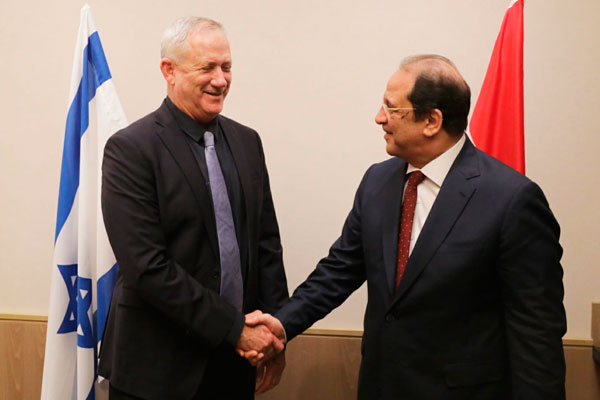
Although the Hamas leadership benefits from the fact that nature abhors a vacuum, the Palestinian uprising in May again showed the limits of the fundamentalist formation. They lack a revolutionary and class programme to confront the Zionist state and only answer to their reactionary sponsors in the Arab oligarchy.
We Marxists were against the formation of the state of Israel in Palestine in 1947, but decades have passed and the situation has been transformed. Generations of Israelis have lived on the land they now inhabit, and a working-class has developed which has also undergone major changes and is no longer firm support for the reactionary plans of the Zionist state. In recent years there have been major workers' struggles, general strikes, the indignados movement of 2011, up to the anti-Netanyahu movement that broke out in July 2020.
The Marxist position on the Palestinian cause has to start from a concrete analysis of the situation and the balance sheet of past events. The Oslo Accords of 1993, which were sold as the realisation of Palestinian "self-determination", have only been a trap, tailor-made to benefit Israel. The reformist left around the world supported this agreement, the idea of "two states" as a necessary step. However, it was nothing but a reactionary abortion.
The Palestinian masses have experienced the fraud of this false "self-determination" under the protective mantle of imperialism and the watchful tutelage of Zionism. Savage repression, land theft through the ever-growing settler settlements, or the punitive policy towards Gaza has been the norm during these three decades. The Oslo Accords were a means to guarantee the occupation and the collaboration of the corrupt Palestinian Authority.
The theory of permanent revolution is clear: the democratic-national rights of colonial and ex-colonial nations can only be won on the basis of a revolutionary movement to overthrow capitalism, landlordism and end imperialist oppression. There can be no liberation of the Palestinian people without overthrowing the Zionist state and the Palestinian bourgeoisie. And this is a point we must emphasise: the role of the Palestinian bourgeoisie, which owns the means of production, exploits the Palestinian working class and has a repressive apparatus to defend its material position.
Fatah has shown in the West Bank what it is: the sub-contractor of the Israeli occupation, providing its services in exchange for maintaining the business and privileges of the class it represents. And Hamas, in essence, has done the same thing over the decades: it needs periodic clashes with Israel to hide its inability to solve the problems of the masses and to achieve national liberation.
The only way for the liberation of the Palestinian people is the socialist revolution, overthrowing and expropriating both ruling classes. This would lay the material basis for a truly democratic solution. And in this task the participation of the Israeli working class is indispensable.
There can be no triumphant socialist revolution in Palestine without a revolutionary movement in Israel. Just as there is unlikely to be a revolutionary movement in Palestine and nothing happening in the rest of the Middle East, as the last ten years have shown. In that context, such a revolutionary upsurge would deepen the tendencies towards class unity.
That is the central point: the conflict can only be resolved within the framework of common revolutionary struggle. And the dynamics of revolutions are dialectical, they do not respond to a predetermined script or closed formulas. Marxists, at the present stage, advocate a socialist federation as the best transitional state form that would fully guarantee the democratic rights of Palestinians and Israelis. A Socialist Federation based on workers' democracy would become the means to successfully resolve the historic tragedy of the Palestinian refugees under democratic and equal conditions and would be the battering ram for extending the revolution to the rest of the Middle East.
But there can be no victorious socialist revolution without a mass revolutionary party that unites the oppressed in Palestine and Israel under the same banner. That is the fundamental task to be resolved in the coming period.

Latin America, between revolution and counter-revolution
With 8.4% of the world's population and 28% of deaths from covid-19, Latin America is the region of the planet hardest hit by the pandemic. Continental GDP fell 7.7% in 2020 and 2.7 million companies and businesses closed. The number of unemployed grew by 26 million, the biggest crisis in Latin American labour markets since 1950. 33.7% of the population, 209 million people, live in poverty, and another 78 million in extreme poverty, 30 million more than in 2019!
This situation is fuelling widespread social unrest. Its most powerful expression so far has been the popular insurrections in Chile and Colombia.[8] In both, a concrete attack (the underground hike and the tax reform respectively) exploded all the accumulated indignation. The factors that characterise a revolutionary situation were present. The massiveness and determination to go all the way defeated the repression, opening deep divisions in the ruling class. The militancy of the youth infected the proletariat as a whole, leading to general strikes, mass demonstrations and dragging along broad sectors of the middle strata.
In both Chile and Colombia, embryonic elements of dual power developed: assemblies, “neighbourhood open committees”, "front lines", which took control of entire neighbourhoods for weeks at a time, organising self-defence against repression. Had there been a revolutionary leadership with a socialist programme calling for an indefinite general strike and calling for the extension and unification of these bodies, the working class in Chile and Colombia would have been able to advance strongly towards power. The absence of such leadership is the decisive factor conditioning the whole situation.
In Chile, the signing of the Agreement for Social Peace and the new Constitution promoted by the Socialist Party (PS) and the Frente Amplio (FA), and its de facto acceptance by the Communist Party (PCCh), saved Piñera, diverting the revolutionary uprising to the parliamentary terrain. But despite the cold water, the working class and the youth once again unloaded a tremendous blow on reaction in the referendum of 25 October 2020 and in the elections to the Constitutional Convention in May 2021. The candidates to the left of social democracy, Apruebo Dignidad (PCCh-FA) and Lista del Pueblo (independent candidates nominated by popular assemblies, feminist and indigenous collectives, social movements...) exceeded 35% of votes and 40% of constituents.
After this result, and with the polls giving the CCP candidate, Daniel Jadue, favourite for the presidential elections, the bourgeoisie unleashed a virulent campaign of fear, identifying a possible Jadue government with "communist totalitarianism" and stirring up the scarecrow of the crisis suffered by Cuba and Venezuela. The CP leaders refused to counter this campaign in the only possible way: by clearly defending a socialist programme that would meet the needs of all the oppressed.
The CCP's policy of conciliation led it to lose the primaries on the Apruebo Dignidad list to the candidacy of Gabriel Boric (FA), who presented himself as the champion of a "realistic" and "inclusive" left. Now the right-wing is using the same demagogy against him, accusing him of "turning Chile into Chilezuela".
With two months to go before the elections, many polls predict a run-off between Boric and the far-right Kast. Undecided voters and possible null or blank votes hover around 30% and the trend towards abstention is growing. The dazzling rise of Kast - a bourgeois politician with discourse and programme similar to that of Trump, Bolsonaro and Vox - represents a real threat. His advance questions the whole of the militant left and social activists about what has happened since the insurrection of 18 October 2019: What conclusions can be drawn from the parliamentary manoeuvres of the ruling class and the strategy that advocates a progressive "reform" of Chilean capitalism?

Kast demagogically uses the economic crisis to distance himself from Piñera, to whose party he belonged, and to tune into the desperation of broad sectors of the middle classes. He also resorts to xenophobia against immigrants, and to the machismo and LGTBIphobia typical of the ultra-right, seeking the support of the Catholic hierarchy and the evangelical churches to increase his penetration in popular strata. It is using the paralysis of the Constitutional Convention to rally demoralised sectors that see how the debates in the Constituent Assembly go on and on and their problems are not solved.
As we have explained in other articles and statements, the Constitutional Convention (the name given to the Constituent Assembly) has left intact the power of the capitalists and their control over the economy, the judiciary, the police and the army. In addition, the bourgeoisie has established a minimum of 2/3 of the votes in the Convention to validate any vote, which allows it to stop measures contrary to its interests by adding the deputies of the Piñerist right, the DC and the PS.
The ruling class is feeling the effects of polarisation and is suffering major divisions. There are sectors that do not trust that the Convention will serve to tie up the masses. That is why they are supporting Kast in preparation for a repressive sortie that will crush the popular movement once and for all. Of course, there is another sector which, while sharing the view that the revolutionary process must be nipped in the bud, fears that opting prematurely for the ultra-right would provoke an explosive reaction, and continues to bet on the alliance between DC and PS which has given them such good results since the end of the dictatorship.
This sector is trying at all costs to get the Concertación (central block) candidate into the second round, making a banner of social peace and reconciliation to prevent a victory for Boric which, despite the limitations of his reformist programme, they think would stimulate the mobilisation of the masses. If they do not succeed, they will try to secure enough seats to control the new parliament, as they do with the Convention, and to condition Boric in case he wins.
And the tactics of the left candidate support this approach. Boric is merely moderating his programme in search of "the centre vote" to counterbalance Kast. But in the conditions of such extreme polarisation and such an acute social crisis, this policy of conciliation can only, sooner or later, strengthen right-wing reaction.
As long as the capitalists keep the banks, big business, land and the state apparatus under their iron grip, they will use this enormous power to sabotage any left parliament or government. No Constituent Assembly of any kind, however "free" and "sovereign" it wants to label itself, can challenge this power through the parliamentary game under the tutelage of the bourgeoisie.
The stakes are high. The Chilean revolutionary left has the obligation to participate in the electoral arena, whether in the elections to the Constituent Convention, to Parliament or in the presidential elections, in order to reach out to the broadest sectors of the working class and the youth. But it must do so by presenting a class programme, with socialist demands that raise the level of consciousness and organisation of the oppressed, that does not limit its horizon to capitalism with a utopian human face.
The organisations to the left of the CCP have had an unhealthy obsession with presenting the slogan of a free and sovereign Constituent Assembly as the panacea that would differentiate them from the reformist left. We have devoted numerous articles and political statements to the debate on this slogan and the negative consequences of putting it in the foreground instead of defending a programme of socialist and class action. The evolution of events has shown that we were not wrong in our forecasts.
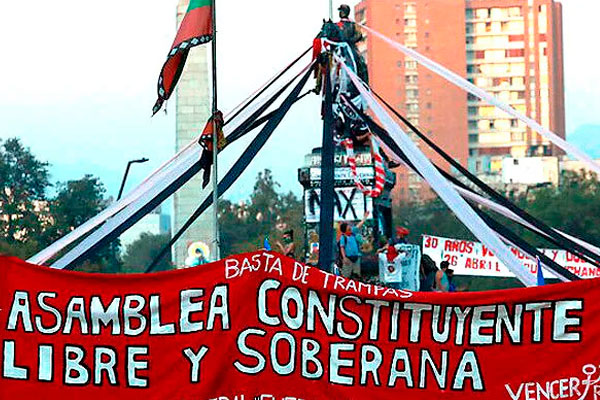
It is still possible to defeat the capitalist strategy of wearing down the movement and demoralising it in order to crush it. But the revolutionary and militant left must make a 180º turn in its public agitation, and abandon once and for all the “stage” conception that contrasts the "free and sovereign Constituent Assembly" with the defence of a socialist programme.
As in Chile, in Colombia, the only thing that prevented the overthrow of the ultra-right Duque was the actions of the National Strike Committee (made up of trade union leaders) and Gustavo Petro (the main leader of the left). All of them have diverted the movement to the electoral front, giving a bourgeoisie paralysed by the direct action of the masses the opportunity to reorganise itself.
With the traditional ruling class parties and the ultra-right Uribista massively challenged, the capitalists are trying out various combinations with new-fangled petty-bourgeois forces, such as the Green Party and others, to raise a "centre-left" alternative. In parallel, they are using a campaign of fear similar to the Chilean campaign against Petro, seeking to secure control of parliament and prevent his victory in May 2022. Something that, despite its reformist programme, would be a turning point in the class struggle.
Abrupt changes
An example of the permanent instability and transformation in the correlation of forces is the situation in Peru.[9] The oligarchy called elections convinced that the fragmentation and paralysis of the left would make it easier for it to form a government with sufficient legitimacy to implement its agenda of attacks. But Pedro Castillo's discourse, denouncing inequality and corruption, and promising profound social change connected with millions of oppressed people. Castillo went from 2% in early polls to winning the largest electoral support in Peruvian history.
Desperate attempts by the oligarchy to prevent his proclamation led to mass mobilisations and a national strike. To prevent an insurrection, imperialism and an initially minority section of the ruling class, after weeks of hesitation, imposed their recognition. In 40 days of government, the class pressures Castillo is under are expressing themselves with extraordinary virulence, aggravating the economic situation and provoking constant governmental crises. His attempt to circumvent them by balancing left and right will only provoke further clashes.[10]
The effects of the crisis are also provoking dramatic changes in a key country like Brazil. The management of the pandemic has laid bare Bolsonaro's criminal policies before millions of people, including sectors of the petty bourgeoisie and desperate popular strata who voted for him. That is why a decisive sector of the bourgeoisie is aware that it needs a reliable replacement to avoid greater evils. The decision of the Supreme Court to release and revoke Lula's disqualification has opened up this scenario.[11]
On 22 May, Fernando Henrique Cardoso, a prominent representative of the ruling class and Lula's historic rival, met with Lula. Although his party declined the invitation to join the PT and PSOL front, Cardoso declared that in a Bolsonaro-Lula contest he will vote for Lula. Bolsonaro is talking about fraud, seeking support from sectors of the ruling class and the military to impose an electoral system that guarantees his victory in 2022, and mobilising his base with a discourse reminiscent of Trump's before the assault on the Capitol.
Although his reformist and capitalist policies paved the way for the rise of the ultra-right, the absence of a consistent alternative on the left (with the PSOL committed to the "popular front" strategy alongside the PT) and the desire to oust the fascist occupying the Presidency, have allowed Lula to garner remarkable support in the polls: 55% against Bolsonaro's 30% in a hypothetical second round. Once again they will try to settle the formidable contradictions of the society in the electoral and parliamentary arena. But as recent history shows, and the example of the US underlines, the time when major issues were resolved by top-down deals is over. Brazil is experiencing unprecedented social and political polarization, and is preparing for a wave of mobilisations and fierce class struggle in which no scenario can be ruled out.
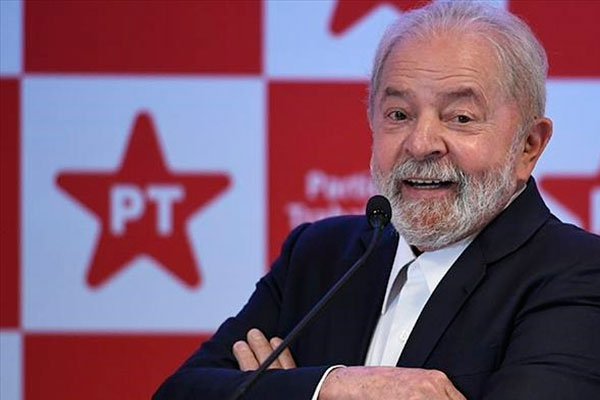
The instinct of the masses to close the door to the right-wing allows AMLO in Mexico, Arce in Bolivia or Alberto Fernandez in Argentina to maintain significant levels of support for the time being. However, the crisis and their policies of caving into capitalist demands on all decisive issues are already increasing discontent.[12]
In the Mexican federal elections, Morena won numerous states reflecting the will of the masses to crush the right and the desire for AMLO to turn left. But in the capital, it received a punishingvote. In the Bolivian municipal elections, MAS won in most municipalities, especially in rural areas; it advanced in Santa Cruz, where the fascists rule, but lost practically all the big cities, including strongholds like El Alto and La Paz.
In Argentina, with 58% inflation and 41% poverty, something not seen since the Argentinazo, the impressive Green Tide for abortion rights has already shown the revolutionary potential that exists. But the most relevant thing is the thrashing suffered by Kirchnerism against Macrism in the primary elections. The results of the FIT-U in the PASO are also a sign of the possibilities for a politics of class independence: more than a million votes, the third national force. These results can be confirmed and even extended in the legislative elections on 14N. The question now remains how to strengthen a class-conscious and revolutionary alternative by wresting from Peronism its mass influence among the working class. And that can be achieved by vigorously defending a united front policy with the most militant sectors of the labour movement and the youth who are still under its influence, without renouncing a socialist policy.
At the other extreme, in Argentina, Uruguay, Chile, Peru and other countries, Bolsonaro imitators are emerging with significant electoral backing or the possibility of having it. They are generally breakaways from traditional bourgeois parties, connected to the state apparatus (military, judges, police mafias...), who appeal to the desperation of the middle classes and rely on the most obscurantist sectors of the Catholic Church and the Evangelical Churches in an attempt to penetrate the popular slums. Their discourse exploits the effects of the crisis, the failure of reformist policies and, in some cases, the massive arrival of migrants to attack socialism and foster xenophobic prejudices.
This development represents a very serious threat. The examples of Chile, Colombia or Peru show that the correlation of forces is still clearly in favour of the left but, in order to take advantage of it and crush reaction, a revolutionary strategy, with a socialist programme and a plan to seize power, is essential.
Cuba and Venezuela
Venezuela and Cuba live exceptional situations on the continent. The liquidation of the Bolivarian revolution - not by US imperialism and the bourgeoisie, but by the PSUV bureaucracy - has had a devastating effect on the morale of the masses. Although thousands of activists continue to search for a revolutionary alternative, the overall situation in Venezuela remains one of the political ebb.[13]
The resounding failure of the US-organised coup in this context (like its defeat in Bolivia after succeeding in overthrowing Evo Morales), and the pitiful role of its puppet Juan Guaidó, is not a matter of secondary importance. Chinese and Russian backing was key to the military's support for Maduro. He has taken important steps in consolidating a bourgeois Bonapartist regime based on the state and PSUV bureaucracy, the military leadership and the so-called "Bolibourgeoisie".
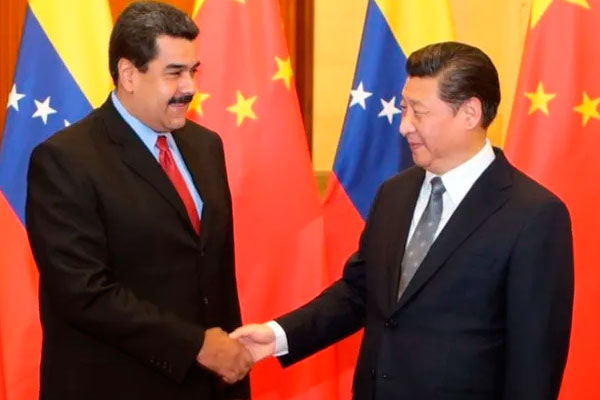
These are the conditions that have precipitated the negotiations between the Maduro government and the opposition in Mexico. The latter's unanimous decision in favour of participating in the municipal and regional elections on 21 November means recognising the defeat of its coup strategy and strengthening Maduro. At the same time, capitalist and Bonapartist policies (deepened during the pandemic) are increasing the rejection of the regime among the masses. The PSUV primaries, planned to convey a sense of strength, had a low turnout and reflected tensions within the bureaucracy.
From 2000 to 2018, Venezuela accounted for 47.8 per cent of Chinese and Russian credits to Latin America (67.8 billion). Most went to mining and oil extraction and entailed dependence on Chinese and Russian companies for investments, imports and new financing. Coupled with the corruption and parasitism of the Venezuelan bureaucracy and bourgeoisie, this capital has not translated into infrastructure development or recovery of production. The oil industry (key to state finances) has collapsed. Various agreements with China, Russia and Iran have prevented total bankruptcy, but the current 600,000 barrels per day is 45 per cent less than before US sanctions.
One of Maduro's main objectives in the negotiations is the lifting, or easing, of these sanctions in order to increase production, meet outstanding payments to China, Russia and Iran, and obtain new credits to stimulate capitalist investment and stabilise the system. In the context of global crisis, the knife fight between the US and China, with Washington forced to fight for its 'backyard', tends to worsen. The prospects for Venezuela are totally linked to the development of the capitalist crisis and the class struggle on a continental and world scale.
This is also true for Cuba. The July mobilisations represented a turning point. The pro-imperialist sectors at home and their masters in Washington are trying to use them to their advantage, but the vast majority of demonstrators were young people and workers protesting inequality, the deterioration of their living conditions, and the corruption provoked by the pro-capitalist agenda of the PCC leadership.
In the broad statement we published before the summer we analysed the nature of these events and the perspectives, emphasising that the only thing that can prevent the triumph of capitalist counter-revolution, whether by the hand of China or the US, is the independent struggle of the Cuban working class and the communist vanguard sectors for genuine workers' democracy, to toss the dead weight of the bureaucracy and its privileges, and to call for the extension of the revolution in Latin America and internationally.[14]
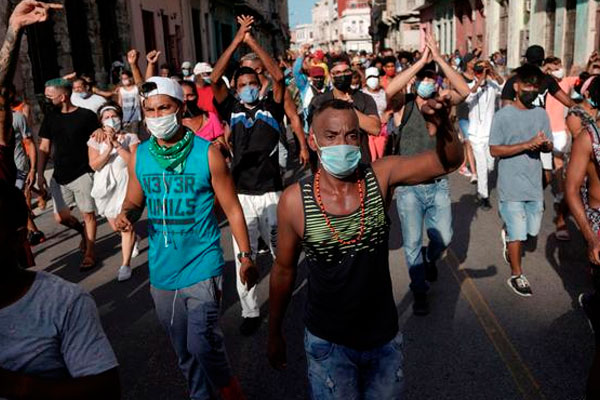
Latin America and "good imperialism”.
Between 2005 and 2015, the boom in commodity exports to China gave Latin American economies, and thus the ruling class, room for manoeuvre. Especially since 2010, it has been a contributing factor in slowing down the revolutionary upswing. China became the main regional lender. Its credits exceed the total granted by the World Bank, Inter-American Development Bank and other Western imperialist agencies.
But since 2015, the effects of the Great Recession have become much more visible on the continent. Revenues from exports to China and credits from the Asian country also declined, although at a much slower rate and volume than those from the US. At different rates, Latin American countries entered a recession that the pandemic has turned into a depression.
This fuelled the Venezuelan economic collapse and the application of adjustment measures by the governments of the PT (Brazil), MAS (Bolivia) or correaismo in Ecuador, which eroded their social support. In countries with right-wing governments, it meant savage "adjustment" plans, as in Argentina, Chile and Colombia. During the pandemic, China's need to prioritise its domestic front has continued.
A question mark over the economic outlook for Latin America is whether and at what pace Chinese investment and credit levels will recover to pre-2015 levels, and whether the region will be included in major Chinese projects (Silk Road, etc.) at a level that will offset the current collapse.
In any case, the experience of 2005-2015 shows that Chinese imperialist investment is no panacea. It did not solve any of the basic problems of the Latin American economies, benefiting fundamentally the big capitalists, banks, the high state bureaucracy and sectors of the commercial and agricultural petty bourgeoisie. With China at the helm, the precariousness of labour and social inequalities and, of course, the imperialist plunder of the continent's natural resources, continued and even increased, generating many of the contradictions that feed the current crisis.
The absence of Marxist leadership is the only factor that has prevented the triumph of the socialist revolution in decisive countries of the continent, which would have changed the history of the world. The experience of the Bolivarian revolution and the international support it mobilised during its peak period is the best proof. But the objective tendencies of capitalist collapse have not abated, nor has stability been restored, nor will the class struggle enter a period of the ebb. Latin America will remain one of the fundamental arenas for forging the revolutionary party.
The US under extreme polarisation
The domestic consequences of the disaster in Afghanistan have also been felt. According to a recent poll published in USA Today, approval of Biden's handling of the troop pull-out has plunged to 41%, with 55% disapproving, and only 26% currently support his economic work. These figures are probably exaggerated, but they show a significant trend.
Trump was defeated at the polls thanks to a historic mobilisation of the vote and after a formidable mass struggle, which led millions of African-American, white and Latino women, youth and workers to fill the streets in the four years of his term, culminating in the social uprising following the murder of George Floyd by racist police. Between May, June and July 2020, between 15 and 26 million people took part in the protests that swept the US from one end to the other.
But this electoral defeat has not meant, as many on the left predicted, either the disappearance of Trump or a weakening of Trumpism, confirming that we are facing underlying tendencies that will continue to feed on the social decomposition generated by capitalism in crisis.[15]
After the November elections, Trump has grown stronger, broadening and consolidating his electoral base among millions of rabid petty-bourgeois and backward sections of the working class knocked out by the recession and wounded in their pride at the irremediable decay of the American empire. His racist and supremacist discourse, his furious nationalism, his despicable machismo, and his appeals against socialism and communism are not the witticisms of a madman, but a banner under which to rally this social dust in the face of a growing anti-capitalist mass movement that questions the privileges of the ruling class.
His refusal to recognise the election results, questioning the mechanisms of American bourgeois democracy, and his direct responsibility for the assault on the Capitol on 6 January this year, has had no legal consequences, but their political implications are of an unquestionable magnitude.[16]
The second impeachment attempt, for incitement to insurrection, ended with his acquittal thanks to the strong support of Republican senators and congressmen. Subsequently, Trump has taken further steps in his control of the Republican Party, purging those sectors that aspired to return to the good old days of conservative Republicanism. The Republican drift to the far right will only deepen.
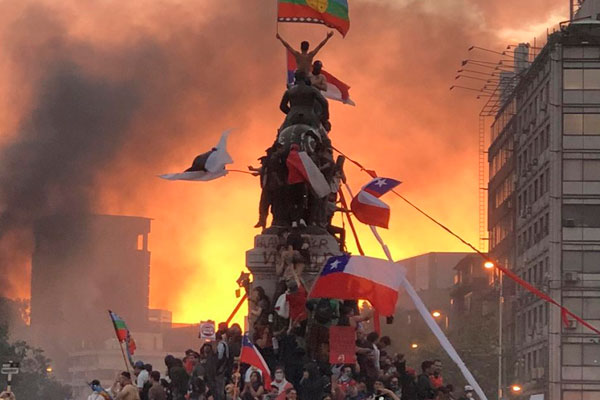
In recent months, Republican-controlled states have been pushing legislative initiatives against women's and transgender rights, minorities or democratic freedoms. Texas and Arkansas have practically banned abortion in all cases, bringing to 19 the number of states that are going to propose new restrictions. In Georgia, Texas, Arizona and Florida, new laws have been passed to limit the right to vote for African Americans and others, or even absentee voting. Even in 5 states, regulations have been passed setting limits on the way the history of slavery is taught, or in Oklahoma to guarantee immunity to drivers who kill or injure a protester if he claims he was fleeing a riot.[17]
Trump is proving to have a significant militant base. A good example of this was the recall referendum to remove the Democratic governor of California from office for opposing the death penalty, being permissive of the homeless and immigrants, as well as for his handling of the pandemic. In order to hold the referendum, 1.5 million signatures had to be collected, which they were able to do without a problem. Although the governor finally managed to hold on with 63% of the vote, the campaign reflected a significant level of mobilisation and organisation on the part of the Trumpist base. A serious warning for the future.
To claim, as was done in the aftermath of the coup attempt, that Trump is isolated and that his actions are alien to the ruling class and the state apparatus is ludicrous. The data that has been made public after a partial and reluctantly conducted investigation have confirmed the involvement or sympathies of important police and military commanders in the coup. Although the US ruling class is not yet committed to imposing a dictatorship, mainly for fear of unleashing a revolutionary situation, it sympathises with Trump in his forcefulness against the working class and the left. The US state apparatus has never had it in its DNA to defend democracy. If tomorrow they feel threatened by the rebellion of the oppressed, they will not hesitate to throw their "democratic traditions" into the dustbin of history.
The extreme polarisation of American society and the sharp rupture of its internal equilibrium have been fuelled by decades of institutional racism and police brutality, social cutbacks and a grinding inequality that has plunged tens of millions of people into exclusion and poverty. At the same time, a minority of oligarchs have amassed super-millionaire wealth and are the absolute masters of power. This is what is behind the crisis of American bourgeois democracy, and the divisions within the bourgeoisie. The crisis of covid-19 or the recent defeat in Afghanistan further fuels these underlying tendencies.
Despite the reformists' continuous propaganda about the goodness of the Biden administration, the Democratic leader is a genuine representative of Wall Street. His "bailout plans" follow in the wake of those approved during Trump's covid-19, showering billions on US multinationals. The most important of these, which has already been agreed by a broad consensus between Republicans and Democrats, is the infrastructure plan, which amounts to 1.2 trillion dollars. The aim is to renew its obsolete infrastructures, among other things in order to be able to compete with China, which spends three times more than the US on this area.
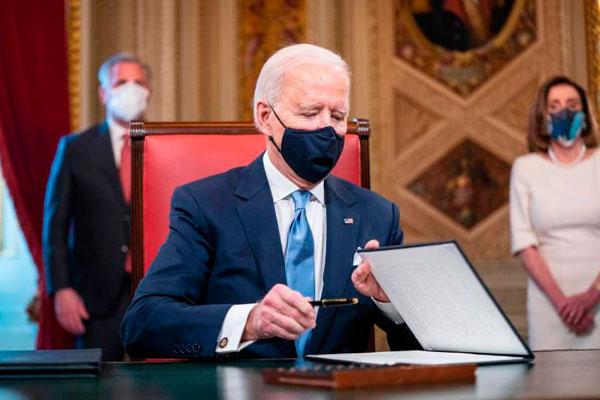
The other part of the plan, the supposed social benefits, is up in the air due to opposition from Republicans and even a sector of the most conservative Democrats. In addition, the Biden Administration has already announced that it will not renew the unemployment benefit programmes approved during the pandemic: 7.5 million Americans could be left without this vital coverage. The number of registered unemployed stood at 8.4 million in August, and another 5.7 million were outside the official count but looking for work, according to the latest report from the Bureau of Labor Statistics.
Meanwhile, the Supreme Court overturned the moratorium on evictions for non-payment of rent, threatening some 3.5 million people with eviction from their homes according to an August US Census Bureau survey. This is the progressive politics of the champion of the new reformist left!
In order to finance these plans, Biden has proposed raising the corporate tax rate from 21% to 28%, something that is still being negotiated and which has been rejected by the Republicans. This increase would be a far cry from the 35% that existed before the tax reform promoted by Trump and supported by the Democrats, which meant a direct $205 billion flow into the pockets of the richest 20% of the population. As for reversing the two trillion dollar cuts in social programmes approved by Trump, nothing at all.
Biden's honeymoon looks like it may soon come to an end. The promise to vaccinate 70% of the population by the end of the summer has failed, and the rate is stuck at 52%. The Delta variant is once again wreaking havoc, slowing down the recovery of employment and the economy.
There is no overtly revolutionary situation in the USA, but there are revolutionary features in the class struggle that has been raging in the country for years. The experience of this historical period has translated into a shift to the left in the consciousness of large sections of the working class and youth. The anti-racist mass movement, which has unified the oppressed along class lines with a defiant anti-capitalist potential, is the result of this process and has been key to defeating Trump. But the counter-revolutionary reaction has also mobilised a powerful army, and not inconsiderable sections of the bourgeoisie have been involved from the beginning. Undoubtedly, the US is one of the main candidates for revolutionary outbreaks with profound implications on a world scale.
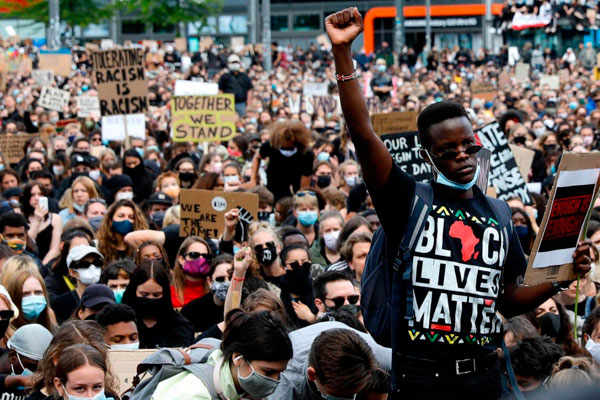
The European Union: more austerity, more class struggle
As for the European Union, the situation is even more dire. Its external agenda rests on a great collective fiasco: the strong economic and political contradictions that plague its fictitious unity paralyse it, and it is incapable of playing any independent role in major world affairs. Its traditional position as a staunch ally of the US is also being eroded.
If the Great Recession of 2008 and the euro crisis of 2014 marked a turning point in the history of the EU, after Brexit and the prospect of a new and long period of stagnation, the centrifugal forces that were barely contained will become even more uncontrollable.
We are facing a dynamic that is deepened by the conflict between Beijing and Washington. Such is the case of the Nord Stream 2 pipeline, which will double Russian gas supplies to Germany. This new infrastructure has been described by the Ukrainian president, a US ally in the region, as a "dangerous geopolitical weapon". Not surprisingly, countries such as Poland share this view. In addition to increasing Europe's dependence on Putin-controlled fuel, China's most powerful partner, it will provide German capitalism with a new tool of economic coercion over its EU partners. In response, Biden is seriously considering sponsoring Ukraine as a new NATO member, which would constitute a historic provocation against Russia.
The formation of two new and increasingly hostile blocs within Europe in the heat of the US-China battle is crystallising. On the one hand, we have the one led by Brexit-led Britain, which can count on several allies among the Baltic countries, and on the other, the German-led and hegemonic one at the moment.
The consequences of Britain's exit from the EU are not providing the British ruling class with the expected results. The departure of one and a half million EU workers, the shortages that affected numerous sectors due to the breakdown of production and distribution chains, the lack of tens of thousands of drivers..., is having an impact on the island's economy: Johnson's prediction at the end of Brexit was that the UK would prosper as a new lone player in international trade; Johnson's plan was to emerge from the pandemic with a strong and thriving economy. What he could not imagine was that supermarket shelves would end up deserted and empty for lack of lorry drivers (...) and that the farming, livestock or food processing industries would not have enough labour to rebound.[18]
In any case, far from "correcting" the imbalances of the previous crisis, EU policy has increased them and generated new ones. The EU's combined debt, which in 2008 stood at 60.7 per cent of EU GDP, has climbed to over 100 per cent by the beginning of 2021. But with the outbreak of the pandemic, instead of a "common response," we find ourselves with a war between the different member states.
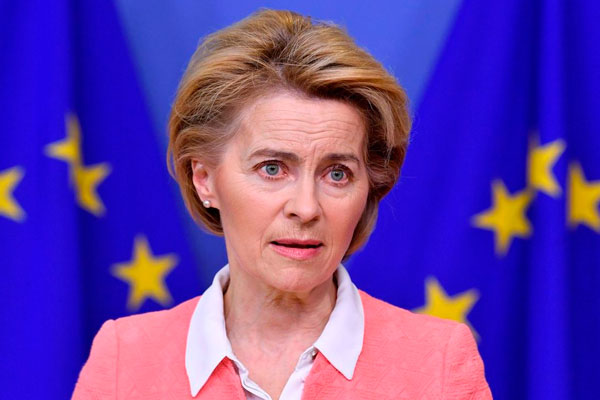
First with regards to medical equipment, when Germany and France banned the export of masks and other medical products to countries seriously affected by the pandemic, such as Italy and Spain. Subsequently, with the aid disbursed by the different governments in defence of their financial sector and industries, with Germany accounting for more than 50% of the total, followed by France and Italy with 17% and 14% respectively, and much further away by the Spanish state, at around 5%.
As in the previous recessive phase, the siren songs about the benefits of the EU have been heard. Unidas Podemos has not ceased to insist on the need for European solidarity. Pablo Iglesias, still in government, welcomed the agreement reached on European funds, to the point of daring to state that they were going in "a diametrically opposite direction to what we saw in the last decade". But this demagogy is not reconciled with the truth of the matter. These funds are intended to "save" the European capitalists, and their granting, as in the previous debt crisis, is conditional on further fiscal austerity measures and social counter-reforms being passed.
It is one thing for the German bourgeoisie and its allies (Holland, the Nordic countries, etc.) to be ready to contribute punctually or to grant credits if they are repaid with guarantees, but they will never accept to shoulder the debts of the weakest countries of the eurozone. Any minimal concessions in the sense of "mutualising" debt will always be in exchange for reinforcing their hegemonic role in the EU, but they will never stop protecting their companies in the fierce struggle for every inch of the world market. In this sense, the pandemic has meant that the European bloc has become even more divided vis-à-vis the US, with countries such as Italy and Greece turning towards China.
This democratic and humanitarian EU, which is full of talk about human rights in Afghanistan, and which is celebrated by social democrats of all stripes, does not hesitate to close its borders militarily against the millions of people fleeing hunger and war; to set up concentration camps in subhuman conditions in Greece; or to shower billions of euros on dictatorial regimes such as Turkey or Pakistan to contain the waves of refugees resulting from the imperialist conflicts they promote.
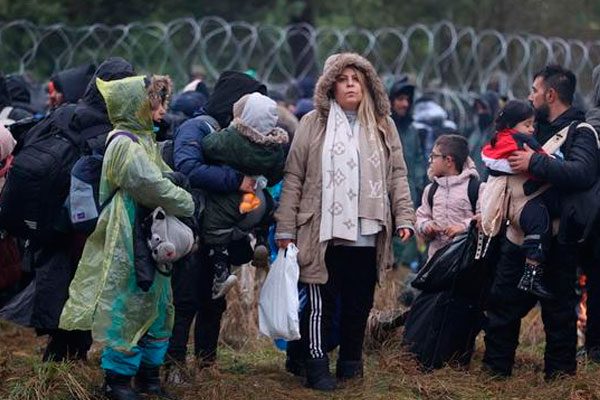
Since the 2008 crisis, centrifugal trends in the EU have only increased - Brexit being the best example - fuelled not only by protectionist tendencies and economic nationalism but also by political factors. People's confidence that their lives and future will be better within the EU has plummeted. On the other hand, the bourgeoisie in all countries have chosen to channel their discourse towards jingoistic nationalism as an antidote to social protest.
It is the ruling class that feeds and legitimises reaction. The only thing the far right does is to defend without any qualms everything that the "democratic bourgeoisie" and the social-democratic leaders say with their small mouths. The advance of the far-right throughout Europe, and the growth of authoritarian and Bonapartist tendencies in many states, is a condemnation of the progressive public's view of European capitalism.
Once the propaganda dies down, and the new austerity plans come into action, the EU crisis will enter a new phase. In the last decade, Europe has seen huge strike and protest movements, revolutionary crises - as in Greece, which resulted in a heavy political defeat at the hands of Syriza -, workers' struggles as in France, which have paralysed the country for months, mass youth demonstrations against climate change and historic mobilisations of working women. We have seen the rise of new parties of the reformist left that have failed to reform capitalism. In the coming period, this struggle will leapfrog between the working class and the youth and, building on the experience of more than a decade of battles, will offer great opportunities for the forces of Marxism.
Inequality and class struggle
Inequality and political polarisation have soared over the past two decades. While millions are thrown into poverty and unemployment, living on poverty wages in a chronically precarious situation, a tiny minority of plutocrats have increased their fortunes as never before in history. Never has so much wealth been produced and never has it been concentrated in so few hands.
According to Forbes[19] magazine, during the pandemic the billionaires have increased their income by 5.5 trillion dollars, or 68%; their fortune has risen from 8 trillion dollars to 13.1 trillion dollars (in 2006 it was 2.56 trillion). Even before the pandemic, an Oxfam Intermón report noted that the richest 1% had twice as much wealth as 6.9 billion people. While this is happening, World Bank studies indicate that in 2020 extreme poverty affected 723.9 million people, and by 2021 it will reach 751.5 million.[20]
The speeches of world leaders at the G7 summit - so applauded by the leaders of Unidas Podemos or Syriza - claiming that they would make the rich pay taxes and put an end to tax havens, are mere posturing and hot air. Nothing different from what happened during the previous economic crisis, when the G20 leaders claimed they were going to "re-found capitalism on an ethical basis".
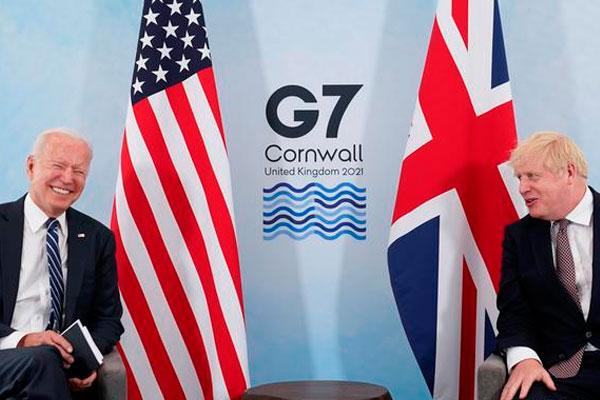
The agreements adopted by the G7 and the G20 are an outright fraud as we have already explained[21]. Biden himself has been a senator for more than 30 years for the State of Delaware, a tax haven in the heart of the USA, with more companies than inhabitants. In Europe, countries such as Netherlands[22], Ireland and Luxembourg act as tax havens to the point that the European Commission plans to set up a court to protect the profits of large investment funds and multinationals.[23] Moreover, the agreement reached by the G-7 had a clear objective for the US: to avoid the so-called "digital tax" against the big American technology companies (Facebook, Google, Microsoft...). This part of the agreement has been swiftly fulfilled.[24]
Fiscal and labour legislation has been undergoing four decades of radical counter-reforms for the benefit of capital. This social and economic counter-revolution has been underpinned by the class-collaborationist politics of social democracy and the trade unions.
One of the foundations on which this counter-revolution rests is the extortion of labour-power. Widespread precariousness and low wages have given the rise in developed countries to the proliferation of the figure of the worker who, despite having one or two jobs, remains on the verge of poverty or in poverty.
According to the International Labour Organisation (ILO), an official body of capitalism, at the beginning of 2020 more than 700 million workers in the world earned less than 3.2 euros a day, and 265 million of them less than 1.90 euros. Two billion were informally employed and 55% lacked any kind of social security coverage. In the months of the pandemic, another 108 million workers are estimated to have fallen into poverty or extreme poverty.[25]
This systemic inequality is the result of all the factors that fuel the current model of accumulation. A general picture in which mass migrations and displacement of refugees caused by imperialist wars, environmental depredation, organised crime and structural poverty stand out.
In Colombia, the number of people displaced by violence reached four million in 2013. By 2019, India and Mexico were the two countries with the most migrants expelled from their territory, 17.5 million and 11.8 million respectively. In the case of the Middle East, the wars in Afghanistan, Iraq and Syria have led to the exodus of more than 6 million refugees in the last five years, crammed into inhumane conditions in internment camps.
Imperialist oppression is combined with the racist policies of the great powers. The case of the EU's xenophobic legislation and border closures, which has led to human carnage in the Mediterranean, is a cruel illustration of the regression into barbarism that we are experiencing. The same can be said about the policies of US administrations. Whether under Trump or Biden, the US ruling class has tightened repression and deportations against the migrant population with all kinds of legal and policy measures.
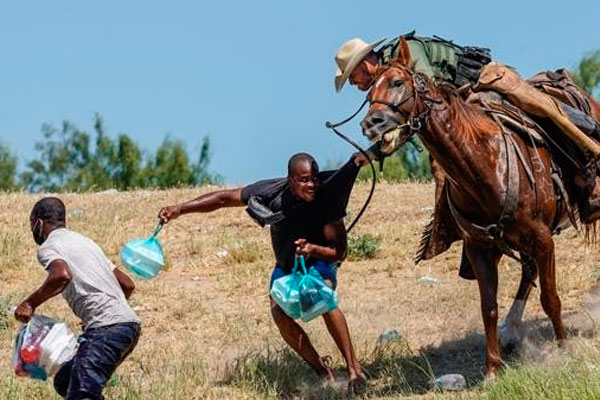
Governments without exception have responded with an inhumane and repressive migration policy and with absolute disregard for the rights and lives of the displaced. Governments that declare themselves "progressive" and "protectors of human rights", such as AMLO's or the PSOE-UP, to quote two examples, are no different from those of the populist and reactionary right. Furthermore, they do not have the slightest qualms about acting as reliable border policemen for the big imperialist powers.
The failure of the reformist left in this field gives wings to the far-right all over the world. Faced with this scenario, which will only get worse in the coming years, revolutionary Marxists must raise a class and internationalist alternative, fighting on the front line to secure all the social, economic, political and cultural rights of our immigrant brothers and sisters, opposing head-on the racist policies of closed borders, all xenophobic measures that use the suffering of refugees and immigrant workers to spread chauvinist prejudices among the working class. The fight against racism, xenophobia, repression and imperialist violence is an indissoluble part of the struggle for socialism.
III. The construction of the revolutionary party
It is a thousand times false that the way out of this crisis is different from that of 2008. It is a deepening of what happened thirteen years ago: massive mobilisation of public resources to prop up the banks and monopolies, and new social counter-reforms. Even the Spanish state government, self-described as the "most progressive in history", is making further cuts in pensions, health care, education and social benefits, while the price of electricity, housing and food is rising wildly.
The ruling class has clear room for manoeuvre thanks to the policy of “national unity”. The united front between the bourgeoisie and the social-democratic formations and the trade unions, and the failure of the new reformist left to raise massive opposition to the strategy of the capitalists, explains what has happened.
The capitalists are prepared to go as far as the situation allows them to go. A good example is a recent approval by the Greek government of the ten-hour working day. This is the heart of the matter. All the steps of the bourgeoisie in the USA, Europe, Latin America or Asia go in this direction.
The reaction of the masses to the new offensive of the bourgeoisie contrasts sharply with the scabby role of the reformist leaders of the working class. It is really surprising that despite the enormous pressure of the catastrophe of the pandemic, and its immediate effects on the economy with the loss of millions of jobs and the growth of huge pockets of misery, despite all these subjective and objective difficulties, during this year and a half of death and desolation we have witnessed mass mobilisations and revolutionary insurrections in many countries.
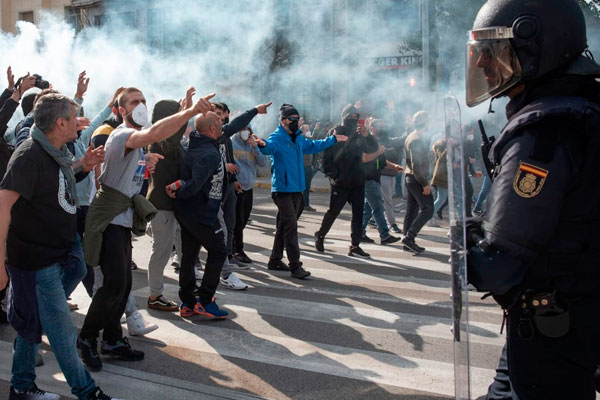
The constant in all these movements has been their explosive character and that they have been born from below. Direct action and open clashes with the repressive forces have been the norm, but when police and military violence has failed to paralyse the struggle, the bourgeoisie has resorted to the services of the trade union bureaucracy and the reformist left, who have made tireless efforts to divert the struggle towards class conciliation and the fraud of parliamentarism in all its versions ("Constituent Assemblies", "National Agreements"...).
Anti-capitalist sentiment has not ceased to spread over the last decade and, understanding that polarisation and capitalist decomposition also encourage the advance of the extreme right, the molecular process of consciousness-raising will undergo new leaps. The crisis of the organisations on the left of social democracy creates the conditions for the most advanced conclusions to break through to broad sections of youth and workers.
Of course, this will not be an automatic process, nor will it be free of contradictions and temporary setbacks. Especially in countries where these organisations have had great weight and have failed, bewilderment, unease and also scepticism will dominate amongst a broad layer of activists. But this will be a temporary phenomenon, not a long-term one.
The rise of the extreme right
As in other historical periods of revolution and counter-revolution, the advance of the extreme right - the party of "revolutionary despair", in Trotsky's words - has become visible. In recent years this populist, racist, supremacist, the homophobic and sexist right has become a real threat, from Trump in the US to Bolsonaro in Brazil, via Le Pen in France or Vox in Spain.
This process will not be contained by any kind of parliamentary sanitary cordon because it feeds on the decomposition of capitalism. The fight against the extreme right highlights the need to defend genuine revolutionary politics. The formations of the new reformist left have returned to the recipes of classical social democracy and Stalinism which, among other things, allowed Hitler's "democratic" victory. Abstract appeals in defence of democracy and, above all, appeals to the state apparatus to protect our democratic rights have no effect whatsoever in the fight against these formations, which also have significant support and sympathies among the judiciary, the police and the army.
As we noted in the section on the US, the phenomenon of far-right reactionary populism is affecting the traditional conservative parties. We are seeing within the traditional right an open turn towards fascistic language, in competition with the rising far-right formations.
The question facing the whole workers' movement, and especially its vanguard, is how to confront the threat of reaction; how to avoid the assault of Marine Le Pen on the French presidency or the possibility of a government of the PP and Vox in Spain. And the answer is clear: by raising a revolutionary programme supported by the massive and conscious mobilisation of workers and youth.
The class struggle in the epoch of imperialist decadence (part two)
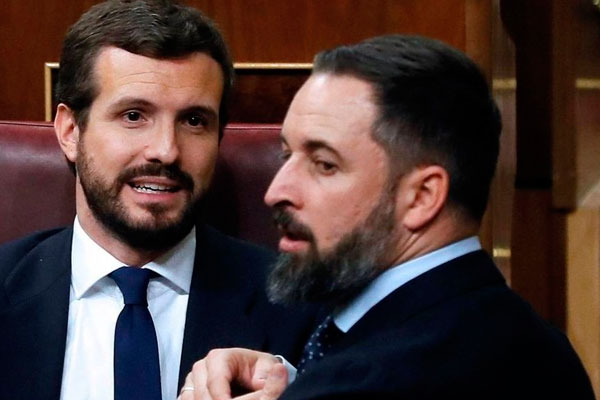
The crisis of the new reformism
Emerging in the heat of the great recession of 2008 and the mass movement that was unleashed in many countries, the "new left" is in complete shambles with all the elements of decadent decomposition. It only aspires to maintain itself as an electoral machine that allows an integrated and assimilated apparatus to survive itself.
The renunciation of politics anchored in revolutionary Marxism, in class independence, in internationalism, has taken a brutal toll on these organisations which, after awakening formidable hopes and expectations, have turned into a smudged copy of traditional social democracy. This is the price to pay for the petty-bourgeois character of their programme, their leadership and their anti-democratic methods in building their structures.
All these organisations have merged with the trade union bureaucracy and have renounced, in deeds and ideas, to fight the battle within the organised labour movement to put an end to the social pact and class collaboration strategy of the big apparatuses. Consequently, a great opportunity has been lost to promote strong left currents in the trade unions, which continue to act at such a critical juncture as the current one as a bulwark of the bourgeoisie to impose its agenda of cuts and austerity.
The case of Podemos[26], which we have analysed in detail, is the most significant, but the process is much more general and its roots run deep. It has happened in Greece after the capitulation of Syriza, it happened in the US with Bernie Sanders and his integration into Joe Biden's administration, it was repeated with the abandonment of Jeremy Corbyn after his electoral defeat, and the examples are multiplying in similar formations in Germany, Portugal, France...

The historical task of re-establishing the programme of revolutionary Marxism as a guide for the action of the oppressed faces major obstacles. Not to see it would be stupid. But it would be even more stupid not to see the general dynamics of the class struggle and the direction world events are taking.
If we look at what has happened in the last two and a half years, the number of insurrectionary movements, general strikes, mass mobilisations and revolutionary crises is staggering. In Latin America, there has been no truce. Colombia, Chile, Ecuador, Bolivia, Guatemala, Haiti, Puerto Rico, Uruguay, Argentina, Honduras... In Asia, we have seen a completely unprecedented situation. The outbreak of the class struggle has hit countries that were previously a raft of stability, with enviable records of economic growth: Thailand, Myanmar, Indonesia, India... The growth of a new industrial proletariat, emerging from the bowels of the peasantry, has been clearly present, as has the advance of its class consciousness.
The same can be said about the Middle East or the African continent. In Tunisia, Algeria, Lebanon, the masses have returned again and again to the scene, reliving the memorable days of the Arab Spring, and making it clear that there is no way out under capitalism.
The revolution in Sudan, aborted by the capitulation of the reformist leadership of the mass movement to the military junta (supported by Saudi Arabia, Russia and China)[27], or the revolutionary struggle of the Nigerian youth against the repression and social cuts of the government of Muhammadu Buhari[28], show the powder keg on which sits a continent ravaged by imperialist greed, and which is now suffering the brutal effects of the pandemic. The events in South Africa at the end of July have shown that there is no escape under capitalism.[29]
What happened at the end of July in South Africa, the continent's key country is highly relevant. The country's major cities were thrown into a week of chaos following the imprisonment of former president Jacob Zuma. According to official figures, 324 people were killed in the riots and thousands of businesses were looted and burned. But all this destructive fury has concrete social causes: inequality that has continued to grow under the capitalist policies of the ANC governments, supported by the Communist Party and COSATU, and which have led to a youth unemployment rate of 75%.
The forces of counter-revolution have acted with enormous energy in the face of all these challenges... but they have not achieved a decisive triumph. The deepening of this political dynamic is what we can expect in the short and medium-term. More polarisation and more explosive class struggle. There is no doubt that if there was a revolutionary international with mass influence in any of these countries, the situation could have been turned around. That is why the subjective factor becomes the most decisive of all. The building of the revolutionary leadership, of the cadres who will enable us to have that influence, is the crucial task.
The most serious mouthpieces of capitalism warn of the same perspective for which we Marxists are preparing and encourage the governments to act. An article in the daily El País, entitled "Anger threatens economic recovery"[30], gave a detailed analysis of the convulsions shaking the world and what lies ahead. They quote a report by the Institute for Economics & Peace, a think tank based in Sydney, Australia, which notes that mass demonstrations, riots and uprisings have increased 251% in the last decade. In this year and a half of the pandemic alone there were, according to its own figures, 5,000 clashes in 158 countries.
"This situation cannot continue for long without massive social tensions and civil unrest. In fact, the perfect storm we are beginning to feel will soon include considerably more social and political instability. Instead of advancing a progressive and transformative agenda, this could lead to ethnic, racial and other forms of violence and chaos. These are the words of Jayati Ghosh, an economist and professor at Amherst University in Massachusetts (USA), quoted in the article.
The question, however, is who will advance the progressive and transformative agenda: the same social democracy and trade unions that are the bulwarks of national unity? The new reformist left that has capitulated?
The building of the forces of Marxism is under pressure from all sides. But in this year and a half, we have made it clear that we are ready to resist those pressures with perseverance. Firstly by understanding the objective process of decomposing capitalism and bringing theoretical clarity to the complex phenomena that are unfolding. Secondly, by energetically orientating ourselves towards the mass movement, always having a sense of proportion, defending in it a class, internationalist and revolutionary programme, without sectarianism and based on united front politics.
The art of party-building consists in approaching a living movement, imperfect and full of contradictions, through a programme, correct slogans and tactics. And the latter is impossible to achieve with a purely propagandist position. Theory must be accompanied by concrete practice, which provides the necessary elements to modify correct and adapt it to the rhythm of the class struggle. Whether in the workers' movement, among the youth, in the feminist struggle or on the national question, we have seen that this method works and is what we need to move forward.
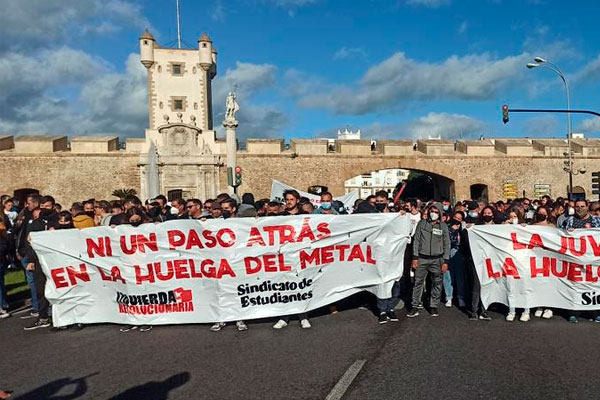
We are building a revolutionary party at the very moment when the experiences of the new left reformism are collapsing. It is inevitable that we will receive contradictory pressures. The environment for explaining the ideas of Marxism is much clearer; the crisis of capitalism is so savage that ideas like the nationalisation of the strategic sectors of the economy are much more accepted and acceptable. Just as our position on the class nature of the state is much more understandable.
But frustrated illusions also mean that among thousands of activists there remains confusion about what Marxism really is and that the feeling of rejection of the "parties and trade unions", a consequence of their constant betrayals, amplifies the prejudices of the petty bourgeoisie.
The importance of the political education of the militants, of the training of the cadres and the leadership, is decisive in this phase. If we continue to consolidate a solid base of workers and youth cadres and maintain our positions in the mass movement, we can have explosive growth in the coming years. Vigorous intervention in the working women's movement and among the youth is one of the fundamental keys in this period. Trotsky pointed this out at an equally momentous historical juncture in The Transitional Programme:
"The Fourth International devotes special attention to the young proletarian generation. Its whole policy is directed towards making the young people confident in their own strength and in the future. Only the fresh enthusiasm and offensive spirit of the youth can guarantee the first successes in combat, and only these successes can draw the best elements of the mature generation back onto the path of revolution. So it has always been and so it will be.
By their very nature, the opportunist organisations concentrate their attention on the upper strata of the working class, ignoring the youth and working women, when it is precisely the degeneration of capitalism that is inflicting its heaviest blows on women (...). The sections of the Fourth International must seek support among the most exploited sections of the working class, and therefore among working women. In them, they will find inexhaustible reserves of dedication, enthusiasm and capacity for sacrifice.
Down with bureaucracy and careerism! Make way for the youth! Make way for working women! These slogans are engraved with fire on the banner of the Fourth International.”[31]
The party is the memory of the working class. By assimilating the ideas, methods and traditions of previous revolutionary generations, by rejecting sectarianism, ultra-leftism and the dangers of opportunist adaptation, and by redoubling our determination to overcome difficulties, we will advance. "A leadership can only educate itself in a fully revolutionary sense if it understands the character of our epoch, its sudden mobility and its abrupt alterations. To lead is to foresee!"[32]
[1] To deepen this section, you can read the articles published by the International:
Debacle imperialista en Afganistán: un país arrasado por las potencias “democráticas”
La hipocresía imperialista y la opresión de la mujer afgana
Pedro Sánchez al servicio de Joe Biden en el desastre afgano
[2] To deepen this section, you can read the articles published by the International:
Claves para entender el gran juego de Oriente Medio
Una oleada de huelgas recorre Irán
Oriente Medio. Pugna interimperialista y lucha de clases
[3] Pakistán, la joya de la corona de la Nueva Ruta de la Seda china
[4] Levantamiento social en Myanmar contra el golpe militar
La junta militar en Myanmar recurre a la represión salvaje, pero la resistencia popular continúa
[5] Crisis revolucionaria en Argelia. Las masas boicotean las elecciones presidenciales con manifestaciones masivas
[6] Levantamiento de masas en Iraq
Líbano en llamas. El pueblo toma las calles
Revolución en Líbano. Por la Federación Socialista de Oriente Medio
[7] Israel bombardea Gaza y las masas se levantan contra la ocupación. ¡Abajo el Estado capitalista sionista!
Millones en todo el mundo en apoyo al pueblo Palestino. ¡Hay que parar la masacre!
Israel lanza una ofensiva militar salvaje contra el pueblo palestino
[8] Chile: vuelco a la izquierda en las elecciones a la Constituyente
La revolución chilena, la asamblea constituyente y la lucha por el socialismo
[9] Pedro Castillo investido presidente de Perú
Perú. Las masas dan la victoria a Castillo
Primera vuelta electoral en Perú. La inesperada victoria de Castillo, un golpe a la oligarquía
[10] La última crisis del Gobierno de Castillo la hemos analizado aquí
[11] Brasil. Crisis del bolsonarismo, el regreso de Lula y movilizaciones de masas
[12] Elecciones 2021 en México. El giro a la izquierda de las masas continúa, pero las concesiones a la derecha se cobran en la capital
Victoria aplastante del MAS en Bolivia
[13] Venezuela: Las nuevas medidas del gobierno significan más beneficios para los capitalistas y más sufrimiento para los trabajadores y el pueblo
[14] Cuba en el ojo del huracán. ¡Defender las conquistas revolucionarias frente al bloqueo imperialista y la agenda procapitalista!
Perspectivas para Cuba. El debate sobre el socialismo y la desigualdad
[15] For a more extensive analysis of the US presidential elections, you can consult the statement of the International:
[16] For a more detailed analysis of Trumpism, its commonalities with fascism, and the nature of the January 6 coup, see the International's statements:
EEUU en el ojo del huracán. Trumpismo, lucha de clases y decadencia imperialista
[17] Ofensiva conservadora en los feudos republicanos de EEUU
[18] El ‘cisne negro’ que se alió con el Brexit: los precios del gas agravan el desabastecimiento en el Reino Unido
[19] Jeff Bezos, Elon Musk, Bill Gates y otros multimillonarios han incrementado su riqueza durante la pandemia, según un informe sobre desigualdad
[20] Últimas estimaciones del impacto de la COVID-19 en la pobreza mundial
[21] Biden y el G7 venden la ‘refundación’ del capitalismo, y la izquierda reformista compra sus mentiras
[22] The Netherlands is the number one destination for shifting business profits, amounting to €134 billion ($140.896 million), which represents more than 10% of the country's GDP.
[23] La Comisión Europea prepara un tribunal para blindar los privilegios de los inversores
[24] The average corporate tax rate in the OECD has been falling steadily for decades, falling from 45% in 1980 to 23.3% today. Therefore, it is a complete mockery that the great achievement of this agreement for tax justice is to impose a global corporate tax ... of 15%! Of the 36 countries that make up the OECD, only 3 have rates below 15% (Ireland, 12.5%; Hungary, 9% and Switzerland, 8.5%).
Billionaires and multinationals rely on a broad financial and legal framework that allows them in some cases to evade up to 100% of their taxes. The recent leak of the tax data of numerous North American tycoons has shown how far it has come. The 25 richest Americans in the world, according to Forbes, increased their wealth between 2014 and 2018 by 401,000 million dollars, but paid only 13,600 million dollars: 3.4%. Warren Buffet paid 0.10% in taxes; Jeff Bezos 0.98%; and Michael Bloomberg 1.10%.
[25] The ILO report concludes that if 255 million full-time jobs were destroyed in 2020, in 2021 the drain will be another 100 million and in 2022 another 26 million.
[26] Hace falta un nuevo comienzo
[27] Revolución y contrarrevolución en Sudán
[28] El pueblo nigeriano se levanta contra el Gobierno de Buhari
[29] África: La pandemia amenaza millones de vidas y abre un periodo de enormes batallas en la lucha de clases
[30] La ira amenaza la recuperación económica
[31] León Trotsky, El programa de transición, edición FFE, página 72.
[32] León Trotsky, La internacional Comunista después de Lenin.






